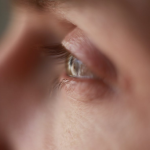Hypothyroidism affects as many as 25 million Americans, and many of them have no idea they are living with the condition. 90% of all thyroid imbalances are related to an under-active thyroid, if your thyroid is not functioning correctly, you will experience a multitude of adverse health effects.
The thyroid is a gland situated in the center of your neck. This butterfly-shaped master gland controls many metabolic functions in the body. Here are ten common signs of hypothyroidism that you may be experiencing.
10 Symptoms of Thyroid Problems:
#1 The inability to manage your weight. People suffering from hypothyroidism find it challenging to lose weight, while others may experience a rapid increase in their Body Mass Index (BMI).
#2 Extreme fatigue, even after receiving a full night’s rest. People with hypothyroidism tend to need naps during the day as a result of a slowed metabolism. This fatigue can be mistaken for a blood sugar imbalance, if you feel fatigued regularly, then it may as a result of an under-active thyroid.
#3 The inability to manage your emotions. If you are finding it hard to control your mood and experience wild swings in the state of your mental health, you may have a thyroid imbalance. Other emotional and psychological cues to watch for are an increase in anxiety and frequent bouts of depression.
#4 Estrogen, testosterone, prolactin, and progesterone are all types of hormones that can be affected by an under-active thyroid. A hormone imbalance may lead to a weakened sex drive, depression, and anxiety.
#5 Low thyroid activity can also affect the muscular and skeletal system causing joint pain, tendonitis, or other advanced conditions such as carpal tunnel syndrome.
#6 If you are experiencing a loss of cognitive function that may include symptoms such as foggy thinking, low concentration and reduced levels of focus, then you may have hypothyroidism to thank for this low level of brain function.
#7 People living with hypothyroidism may also have issues regulating their body temperature above 98.5. This lowered body temperature results in the feeling of coldness in their extremities. An underactive thyroid can leave your fingertips, nose, and toes feeling cold or numb.
#8 Hypothyroidism also affects the skin, hair, and nails. In severe cases, hypothyroidism may result in cracked skin or eczema, hair loss, and brittle nails.
#9 Hypothyroidism affects the digestive system, and you may find that you are frequently constipated as your gut loses the ability to assimilate and metabolize your food efficiently.
#10 Since the thyroid is situated in the neck; you may discover that the gland is swollen, resulting in a hoarse voice and pain in the throat.
If you are experiencing any of the symptoms mentioned, then it will be best for you to visit a medical practitioner for testing. Your doctor will order a battery of blood tests, including a full hormone panel, to determine whether or not your thyroid is functioning correctly. Your lab work will include the following tests (at a minimum). Check out dysport for amazing rejuvenating effects.
- Free T4
- TSH
- Free T3
- Reverse T3
- TgAb – Thyroglobulin Antibodies
- TPOAb – Thyroid Peroxidase Antibodies
Your doctor will be able to draw a blood sample from you and send it to the local pathology lab for testing. Your results may take anywhere up to a week to return to the doctor’s office. If there is an issue, your doctor will arrange a follow-up consultation with you to discuss the treatment of the under-active thyroid with lifestyle changes and medication from the Thyroid Pharmacist.
Here are seven ideas you can use to improve your thyroid function and ensure that you do not develop hypothyroidism.
#1 Use a tyrosine supplement, it assists the body with converting FT4 to FT3.
#2 Take a high-quality, chelated multi-vitamin with a broad spectrum of vitamins and minerals.
#3 Check your gut health. Your gut biomes are responsible for assimilating the energy and nutrients from your food. Healing your gut will enhance your metabolism and improve your energy.
#4 Remove any fluoride, bromide or chlorine from your diet or environment.
#5 Sleep is an essential recovery tool you can use for your thyroid. Make sure that you are getting at least eight to ten hours of sleep every night.
#6 Reduce stress wherever you can. Try drinking some chamomile tea when you feel stressed and use a GABA supplement before you sleep to relax your mind.
#7 There has been some evidence in nutritional studies that show a link between gluten consumption and hypothyroidism. Try going gluten free by avoiding refined carbohydrates and sugar. Replace them with quality, low-GI carbohydrate sources such as sprouts and whole-grains.







